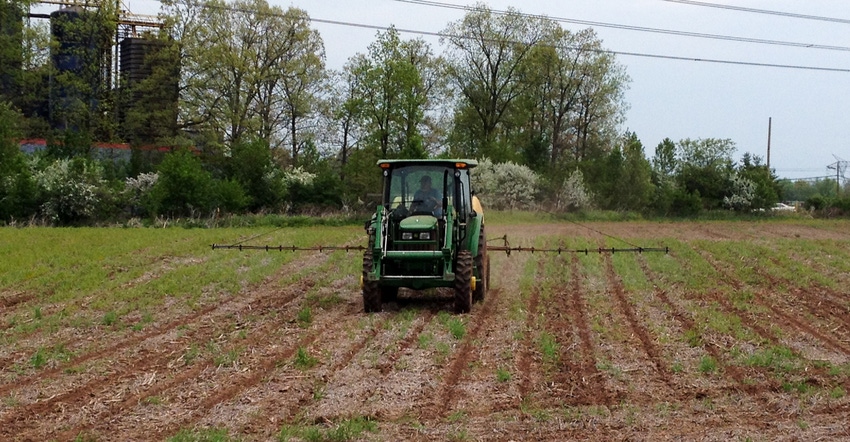December 5, 2018

Just because the weather is cold doesn’t mean it’s time to rest on your laurels. That’s especially true when it comes to getting your sprayers ready for overwintering.
Andrew Frankenfield, Penn State Extension educator, says that failing to winterize your pesticide sprayer could damage the sprayer's components.
Cleaning the sprayer regularly, especially before winter, he says, is critical. Pesticide labels will outline proper cleaning procedures, including what cleaner to use.
Here are five other things you can do to winterize your pesticide sprayer:
1. Remove filters. The filters can be washed by hand with soapy water and rinsed.
Metal filters can be stored in vegetable oil to prevent rust pitting. It’s important to place the filter housing back on the sprayer.
2. Clean nozzles and remove pressure gauges. Along with removing the nozzles, valves and screens should also be checked.
They can all be cleaned with soapy water and rinsed. Metal screens can also be stored in vegetable oil.
Pressure gauges and cap openings should be removed. They can be stored at room temperature in an upright position.
For proper instructions on how to clean and store the foam marker system, flow meter, rate controller and electronic system, refer to the owner’s manual.
3. Remove water from sprayers. An air hose can be used to blow out any excess moisture in a sprayer.
RV antifreeze with corrosion preventer can be added. Be sure to save the containers to collect antifreeze in spring for re-use.
4. Properly manage large sprayers. A small electric pump can be used to push RV antifreeze into lines and nozzle openings in larger sprayers.
You can place containers under open nozzles to collect the antifreeze. Remember to stop the pump when you see pink coming out of the nozzle openings. Cap the nozzles to maintain fluid in the system.
5. Wear protective equipment. This is one of the most important things to do when getting the sprayer cleaned for overwintering. Pesticide exposure isn’t the only thing that can be potentially dangerous, so be safe and wear equipment.
Source: Penn State Extension
You May Also Like




